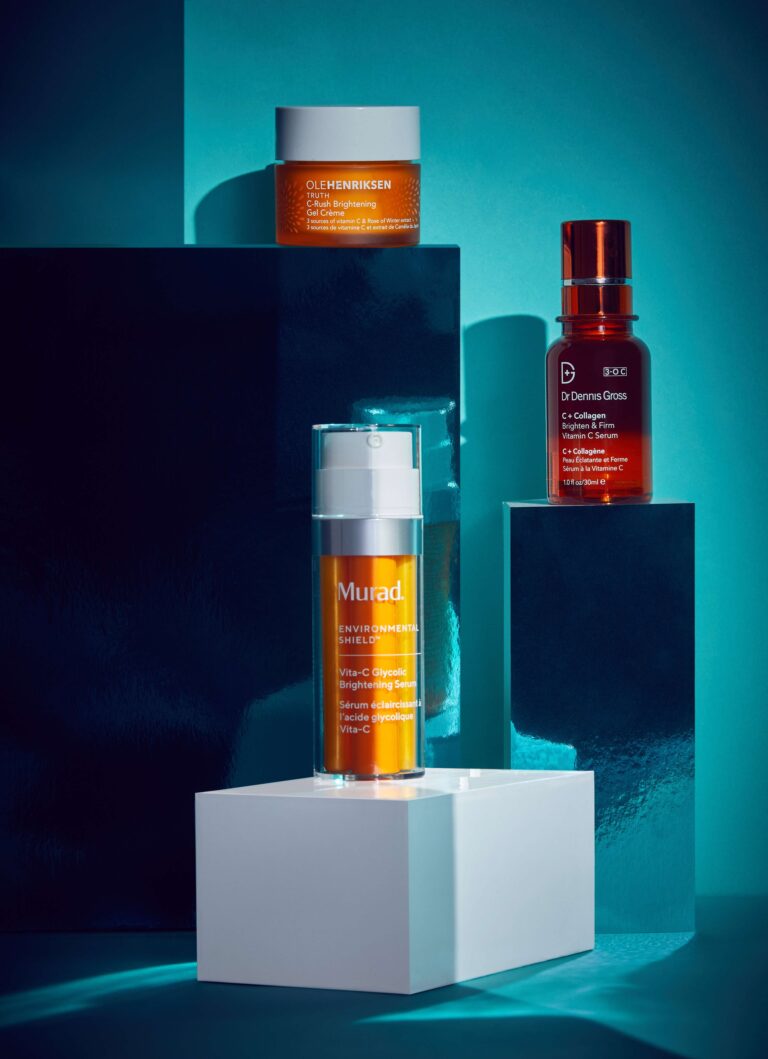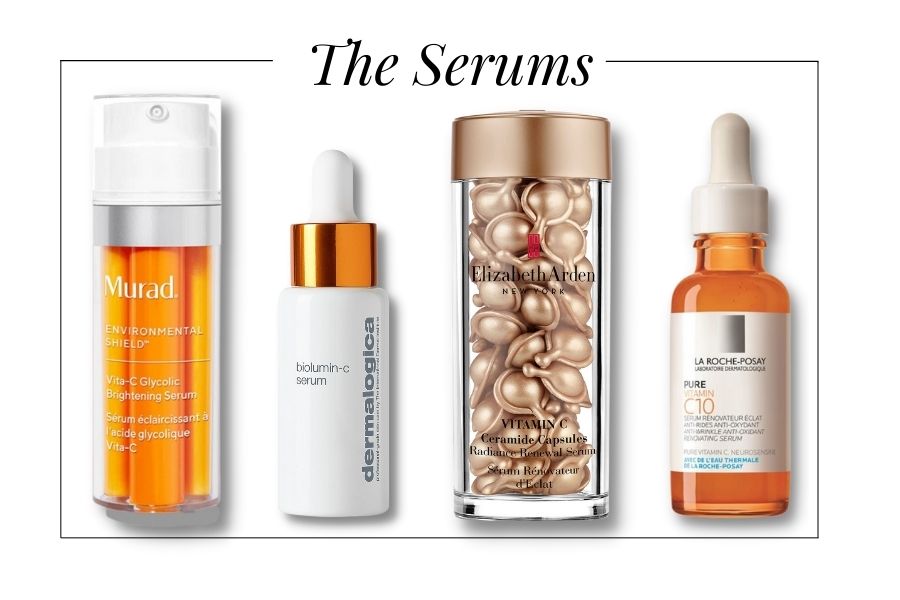
While new ingredients can fail to stack up and deliver the results we expect from our skincare routine, there is a good reason why vitamin C has become a mainstay in beauty routines around the globe. “Vitamin C is clinically proven to be one of the most potent antioxidants and a real skincare ingredient powerhouse,” explains Caroline Parker, head of education for Dermalogica New Zealand.
“It plays a critical role in collagen and elastin synthesis, including wound healing, and acts as an antioxidant in the skin – which is especially important as it inhibits UV-induced damage,” she adds.

Is it right for me?
If overall skin health is top of your skin goals, and we’re talking radiance, even tone and resilient skin, look no further. While vitamin C has become the must-have skincare ingredient where skin radiance is concerned, there’s a lot more to this multitasking, pigment-fighting hero of the beauty world.
For a start, as Parker explains, loading up your routine with vitamin C-based skincare guarantees your complexion is getting a serious dose of antioxidants on the regular. In short, this means warding off skin-damaging free radicals, which can contribute to premature ageing.
As well as boosting radiance, banishing pigmentation and keeping visible signs of ageing at bay, vitamin C gives your skin a helping hand to synthesise collagen. Our collagen stores become depleted as we age, and diminished collagen levels can contribute to skin sagging and fine lines and wrinkles. “Vitamin C is an essential cofactor in collagen production in the skin, which provides skin firmness,” says Parker.

Okay, I’m convinced. How do I use it?
While certain potent skincare ingredients favour an easy-does-it approach, vitamin C is relatively gentle on the skin – though it is always a good idea to consult a knowledgeable skin therapist when introducing active ingredients into your routine. And there’s even better news: it’s excellent for all skin types. “All skins will benefit from vitamin C,” says Parker.
It doesn’t matter whether you’re after a new moisturiser or perhaps an at-home treatment, as there are countless ways that you can start to incorporate vitamin C into your daily beauty routine. From luminosity-enhancing serums to pigmentation-fighting cleansers, if you can name the skincare, there is most likely an effective vitamin-C-based formula to suit your needs. So whether you decide to start – or finish – your day with an energising vitamin C-enriched cleanser, or layer on a supercharged serum before your daily SPF, working this must-use ingredient into your routine is easy.

However, as Parker points out: not all vitamin C formulations are created equal. Vitamin C can be very tricky to stabilise, as Parkers explains. “Vitamin C is notoriously difficult to formulate because it is easily oxidised by air, heat or water, and once the vitamin C has oxidised, the formula loses its efficacy.” But don’t let that put you off – skincare technology is constantly evolving to create more stable and effective formulations than ever before.
Dermalogica BioLumin-C Gel Moisturiser is one of the beauty house’s vitamin C-based formulas that harnesses cutting-edge skincare tech to deliver unparalleled results. “Dermalogica uses two ultra-stable forms of vitamin C, which ensures the vitamin C is bioavailable, which means that it gets to the area of the skin where it is needed most,” Parker explains.
With that in mind, if you want visible results, vitamin C is one of the essential skincare ingredients worth investing in. Because at the end of the day who doesn’t want luminous, healthy skin?









